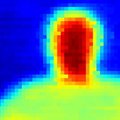Jacob Killelea will host the Hack Chat on Wednesday, July 12 at noon Pacific.
Time zones got you down? Try our handy time zone converter.
In space, everything is harder. Hardware has to be built to withstand not only the harshest possible regimes of temperature and radiation but the rigors of launch. Power is at a premium, things that are supposed to stay cool get too hot, and things you want to keep warm freeze solid. It seems like everything you "send upstairs" has to be over-engineered compared with the stuff that stays down the gravity well.
But what about software? Yep, that needs special engineering too -- after all, one little mistake, one uncaught exception, and millions or even billions of exquisitely crafted space hardware could become as useful as a brick. Jacob Killilea is an aerospace engineer who has done the rounds of a number of space concerns, and he's worked on a number of space software projects, including a pulsed laser system with the potential for lunar orbital communications. He knows what it takes to write software that keeps space hardware ticking, and we're excited to have him log into the Chat to talk about it.








Hi guys, I wold be very interested joining this chat, just to learn about this. Do you guys have any discord or something like that?